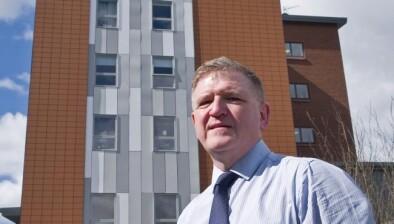‘Nothing to celebrate’ as energy price cap falls to £2,074

The new energy price cap covering the period from July to the end of September 2023 is to be set at £2,074, Ofgem has announced today.
While this represents a fall from the current Energy Price Guarantee of £2,500, campaigners have highlighted that it will broadly take consumers back to the winter, where they benefited from the Energy Price Guarantee and the Energy Support Scheme – which was £400 off energy bills spread over October 2022 to March 2023.
Crucially the cap will remain higher than before the energy crisis. Between April and September 2022 the cap was £1,971, and the summer before that was £1,138.
Ofgem CEO Jonathan Brearley said: “After a difficult winter for consumers it is encouraging to see signs that the market is stabilising and prices are moving in the right direction. People should start seeing cheaper energy bills from the start of July, and that is a welcome step towards lower costs.
“However, we know people are still finding it hard, the cost-of-living crisis continues and these bills will still be troubling many people up and down the country. Where people are struggling, we urge them to contact their supplier who will be able to offer a range of support, such as payment plans or access to hardship funds.
“In the medium term, we’re unlikely to see prices return to the levels we saw before the energy crisis, and therefore we believe that it is imperative that government, Ofgem, consumer groups and the wider industry work together to support vulnerable groups. In particular, we will continue to work with government to look at all options.”
Citizens Advice Scotland said it is concerned that the headline price cap falling may lead to complacency from policy makers that the worst of the cost of living crisis is over, when in reality people have had to deal with huge hits to their income for close to two years, since inflation started rising sharply in 2021.
The charity’s social justice spokesperson David Hilferty said: “This fall in the price cap does not necessarily mean cheaper bills for people, given the end of the Energy Support Scheme. The cap remains higher than it was last summer, bills will remain higher than the beginning of this crisis in 2021, and since then people have faced a huge squeeze on their finances.
“Over the winter CABs have seen horrific examples of people struggling to keep their heads above water during this cost-of-living crisis, having to choose between heating their homes or charging essential medical equipment, food for their kids or paying the rent.
“These soaring energy bills didn’t happen in a vacuum, they happened alongside, and indeed drove, the highest level of inflation and interest rates we have seen in decades and that in turn wiped out the savings of many people, forcing thousands into debt to keep up with essential spending. Yesterday we saw food inflation at an eye-watering 19 per cent. This cost-of-living crisis is far from over and people will be feeling the effect of it for years to come.
“The price cap being marginally higher than it was before the crisis is nothing to celebrate, and it is essential policy makers do not grow complacent here. This crisis will cast a long shadow and people will continue to need support.
“Citizens Advice Scotland would propose three things policymakers could do to support people – increase the value of social security, a social tariff in the energy market for those on low incomes, and better funding for advice services like CABs that help people with energy and financial problems. CABs deliver real results for people, with the average financial gain for those who saw one after seeking advice last year being £4,200.”







